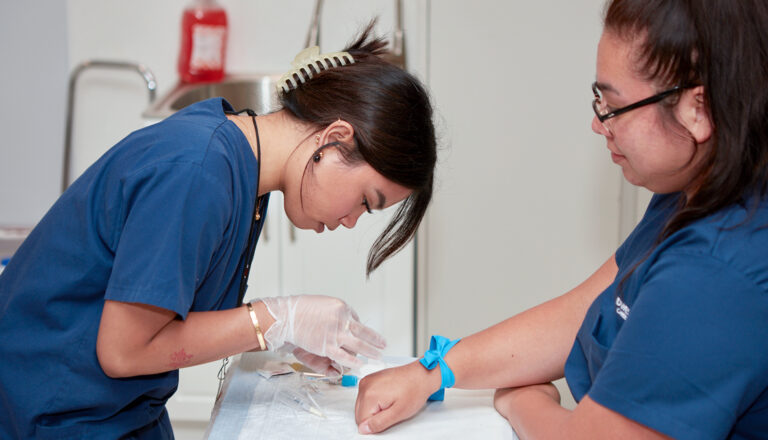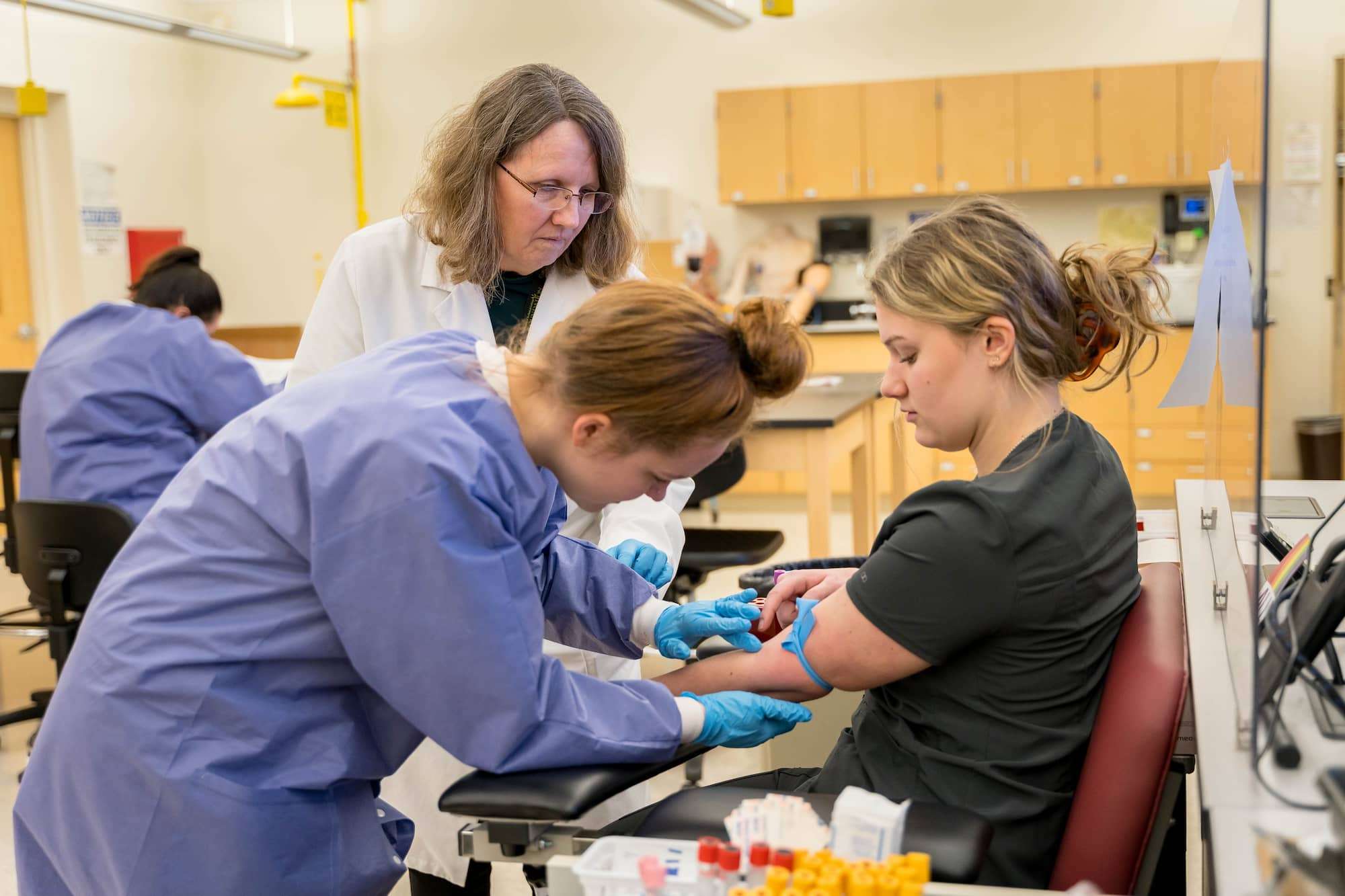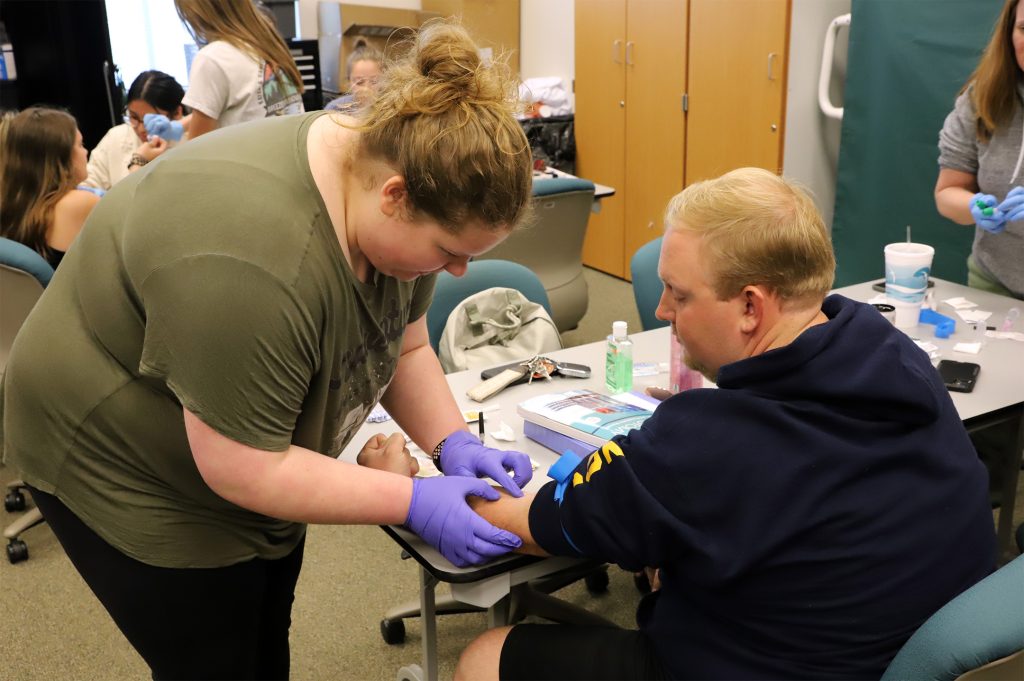
Contents
In a world where healthcare services continue to valorize patient-centered approaches, the role of phlebotomists has evolved from being just another cog in the medical machinery to becoming a critical component of patient care and diagnostic processes. This blog aims to illuminate the path for aspiring phlebotomists, healthcare students, and medical professionals curious about the art and science of phlebotomy. Here, we dissect the essence of phlebotomy, its significance in healthcare, the kaleidoscope of skills required to excel, and the future it holds within the medical field.
What is Phlebotomy and its Importance in Healthcare?
Phlebotomy, in its simplest definition, involves drawing blood from a patient for medical testing, transfusions, research, or donation purposes. It’s a procedure that predates modern medicine yet remains indispensable in diagnosing and treating patients. The accuracy of numerous medical diagnoses hinges on the quality of blood sampling, rendering phlebotomy an essential skill in the healthcare arsenal.
The Role of Phlebotomists in Patient Care
Phlebotomists are often the frontline professionals who interact with patients during blood draws. Their role extends beyond mere technique; they are ambassadors of empathy, providing reassurance and care in moments of vulnerability. An adept phlebotomist not only ensures the integrity of the sample but also enhances the patient’s experience, attenuating fears and providing support through the procedure.

Essential Skills for a Successful Phlebotomy Career
To thrive in phlebotomy, one must cultivate a blend of technical and soft skills. Precision, dexterity, and a steady hand are the hallmarks of a skilled phlebotomist. However, equally important are interpersonal skills, communication, and the ability to empathize with patients. Staying informed on safety protocols and best practices is also non-negotiable, ensuring both practitioner and patient safety.
Overview of Phlebotomy Training: What to Expect
Phlebotomy training programs are designed to equip students with both the knowledge and the hands-on experience needed for certification. Empower your healthcare journey with our expert-led Phlebotomy Course, designed to equip you with essential skills and knowledge for success in the field. These programs typically cover anatomy, phlebotomy techniques, equipment handling, safety and infection control, and patient interaction. A significant portion of training is clinical practice, preparing students for real-world scenarios under supervised conditions.
Safety and Best Practices in Phlebotomy Procedures
The paramount importance of safety in phlebotomy cannot be overstated. Adhering to best practices such as proper identification of the patient, correct labeling of blood samples, and rigorous adherence to infection control measures, ensures the safety and wellbeing of both patients and healthcare providers.
Advancements in Phlebotomy Technology and Techniques
The field of phlebotomy is not static; it evolves in conjunction with advancements in medical technology. From the development of more ergonomic and less invasive needle designs to the implementation of sophisticated tracking systems ensuring the traceability and integrity of samples, these innovations streamline phlebotomy practices, enhancing efficiency and patient comfort.
Career Paths for Certified Phlebotomists
Certification opens a plethora of career opportunities for phlebotomists. Beyond hospitals and blood donation centers, certified phlebotomists are sought after in laboratories, research institutes, and outpatient care centers. With experience, phlebotomists can advance to supervisory roles, educational positions, or specializations in areas such as pediatric phlebotomy or blood bank technology.
Interview with Experienced Phlebotomy Professionals
Gleaned insights from seasoned phlebotomists highlight the diversity and fulfillment inherent in this profession. These professionals underscore the importance of continual learning, the joy of patient interaction, and the profound sense of purpose derived from contributing to patient care and medical diagnostics.

Common Myths and Misconceptions About Phlebotomy
Phlebotomy is often shrouded in myths, from the notion that it’s solely about drawing blood to the misconception that it requires no formal training. Dispelling these myths is crucial not only for the professionalization of phlebotomy but also for educating the public about its integral role in healthcare.
Our exploration concludes here, but the vein of inquiry runs deep. Phlebotomy, an ancient practice refined over centuries, continues to be a pivotal element of healthcare. For those aspiring to join this esteemed profession, remember that you’re stepping into a realm where your skills can illuminate the mysteries of the human body, aid in healing, and, most importantly, touch lives in profound ways.